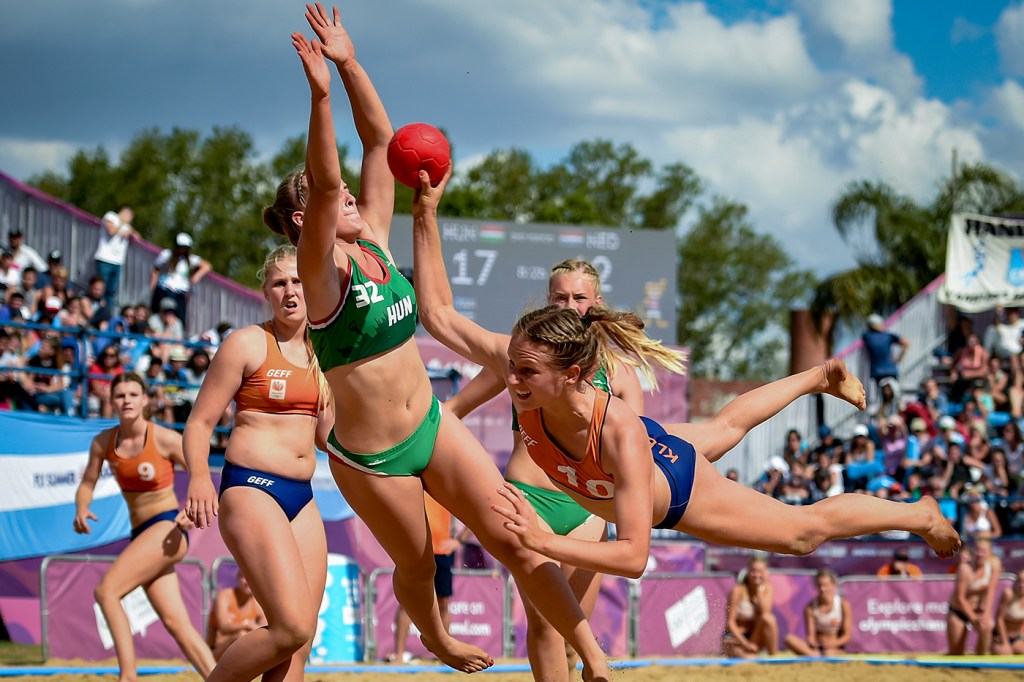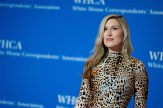Olympic men compete in shorts, women in bikinis–but the Tokyo Games could change all that

Watching masked athletes compete in empty stadiums, it’s clear that this year’s Olympic Games are unlike any before. But it’s more than the COVID-19 precautions—the Games in Tokyo also feature the rumblings of a movement among women athletes to take back control of their uniforms and their image on the world stage, say two Northeastern scholars.
Across countries and sports, women are pushing back against unequal standards for uniforms that they say over-sexualize them and divert focus from their athletic ability. Members of the German women’s gymnastics team opted for ankle-length unitards over the bikini-cut unitards common in women’s gymnastics. Just prior to the Olympics, Norway’s women’s beach handball team was fined for wearing shorts instead of bikini bottoms to compete.

Left, Rachel Rodgers, associate professor of applied psychology in the Bouvé College of Health Sciences at Northeastern. Photo by Adam Glanzman/Northeastern University. Right, Dan Lebowitz, executive director of the Center for the Study of Sport in Society at Northeastern. File photo.
Sport by sport, athletes on men’s teams typically compete in looser clothing: Gymnasts usually wear a singlet and looser pants, and handball players wear shorts and tank tops.
“You would think that at least here, in a competition among the world’s greatest athletes, we should be focused on the functionality of women’s bodies, and yet the conversation is still about what they’re wearing,” says Rachel Rodgers, associate professor of applied psychology, who studies sociocultural influences on body image.
For women athletes, the pendulum swings the other way, too: Paralympian Olivia Breen recently recounted an incident during which a competition official remarked that her racing briefs were “too short and inappropriate.”
“This is more than an inflection point,” says Dan Lebowitz, executive director of the Center for the Study of Sport in Society at Northeastern. “It’s not merely a moment, but a movement, and a powerful one. Once you open these conversations, they can’t be forced back into the box, nor should they.”
Placing different standards on what women or girls wear isn’t new, even in the Olympics—in 2012 the Badminton World Federation tried (and failed) to force athletes on the women’s teams to wear skirts in order to “look feminine and have a nice presentation.”
“What we’re seeing with the sexualization of athletic uniforms is just one piece of the way that society polices women’s bodies and in particular, what they wear,” Rodgers says.
The story is the same outside of sports, too. Across the U.S., judges have struck down discriminatory dress codes in schools and workplaces. But athletes may be in a unique position to push back—and keep the momentum building.
“Athletics is both an amazing common denominator and an amazing community builder: You can be of different political persuasions, races, worldviews, you name it, and still all come together to root for the Red Sox, or the Patriots, or Team USA,” Lebowitz says.
And that common ground, Lebowitz says, offers an opportunity to present viewers and fans with ideas they might not have been amenable to in any other setting.
“The reason that athletics is such a powerful medium for change is that the ever-real and often intense passion of fanhood, can be mobilized to create a movement toward both a bigger purpose and a sustainable collective better,” he says. “That collectivism amplifies the voice of the athletes, of the teams and of their mission and message, allowing them to be the very conversation starters that give license to fans to embrace positive normative change and engage a bigger, and wider audience of potential change makers.”
For media inquiries, please contact Shannon Nargi at s.nargi@northeastern.edu or 617-373-5718.





